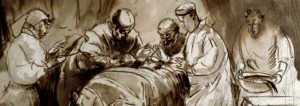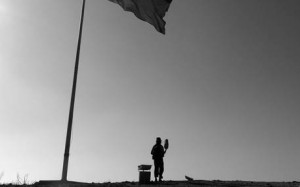I do hope you’re all having a good term, and have enjoyed the first few weeks back at Birkbeck after the Christmas break.
* First of all, a reminder about the offer from the Art Fund of FREE national art passes for all students on our History of Art programmes. I’ve been told by our contact at the Art Fund that many of you have taken up the offer – but, if any of you haven’t as yet, and would like to do so, then please do sign up before the deadline – TODAY! (30th JANUARY).
* In my last blog, I filled you in on some of the latest activities of members of staff – and news keeps coming in of new publications, events and exhibitions. My colleague (and neighbour in the attic in Gordon Square), Suzannah Biernoff, has just told me that she currently has essays in the catalogues for not one, but two exhibitions on at present! Both shows are in their last few weeks, so do catch them if you have a chance:
– War, Art and Surgery at the Hunterian Museum, Royal College of Surgeons, until 14th February
– The Sensory War 1914-2014 at Manchester Art Gallery, until 22nd February
* Some of you will already know that, whilst it may no longer be the season to be merry, it is the season to be surveyed. The first of the surveys in which Birkbeck participates has just opened: the National Student Survey (NSS), run by Ipsos Mori, for final-year undergraduates (it closes on 27th April). The other surveys which will open over the next couple of months are:
– the Birkbeck Student Survey (BSS), for non-final year BBK undergraduates, open from 16 Feb – 15 May
– the Postgraduate Taught Experience Survey (PTES), for postgraduate taught students, open from 16 Feb – 15 May
– the Postgraduate Research Experience Survey (PRES) for postgraduate research students, open from 2 Mar – 14 May
You will be contacted directly by either Ipsos Mori (for the NSS), or the College (for the other three) – and I, and the Department, would be really grateful if you could take the time to participate. For one thing, each survey does have a prize draw attached to it! But also, whilst I know that very few of us rate completing surveys and questionnaires as fun, it is also very useful for the Department, and the College, to hear your views, and to find out more about your experiences of studying with us at Birkbeck. We do take these surveys seriously, and scrutinise and discuss the results. The NSS is particularly important, as the College needs to have an overall response rate of more than 50% before the results are made publicly available on Unistats.com, a site designed for and consulted by prospective students. Thank you!
* Finally – I’m happy to post a piece written by one of our current PhD students, Gary Haines, who works on the visual and cultural representation of the Blinded British Soldier of the First World War. I shall leave you with his thoughts on Access and Birkbeck, and some useful information about the services provided by the Disability Office.
Independence of Study, by Gary Haines
Independence, the word can mean many things – freedom, to do what you will when you want and, for those of us of a certain age, Will Smith fighting aliens in Independence Day. Independence can mean something else though. It can mean striving to be able to do what most of us do on a daily basis without thinking. To walk, to see, to read.
How does someone who cannot see read, a sense we take for granted? Without reading, we cannot function as academics. This area is of particular interest to me due to my PhD research on the blinded British soldier of the First World War. How could you regain your independence when you cannot see?
Striving for independence was featured as a theme in the recent exhibition held at the National Portrait Gallery. This exhibition, curated by Dr Heather Tilley of Birkbeck, examined portraiture of prominent blind and visually-impaired people in the nineteenth century, who strove for independence and who were active in the worlds of art, education, travel and politics. It featured the lives and images of James Holman, nicknamed ‘the blind traveller’, who travelled the world in spite of his blindness and limited mobility, and Henry Fawcett, economist and prominent campaigner for suffrage, who was blinded in a shooting accident. A wonderful blog by Heather can be found here.
* * * * *
Birkbeck enables independence for students with visual impairments and other disabilities via the Access team. This assistance is centred at the Disability Office, located in room G12 on the ground floor of the Malet Street building. The staff here can provide advice and support on travel and parking, physical access, special equipment, personal support, examination arrangements, etc.
UK and most EU students with disabilities on undergraduate and postgraduate courses are eligible to apply for the Disabled Students’ Allowance (DSA). The DSA can provide support and all the evidence shows that students who receive it are more likely to complete their courses successfully. The Disability Office can provide further information on the DSA and can assist you in applying to Student Finance England for this support.
The Disability Office can also provide guidance on obtaining a personal assistant to support you on your course. This can include assistance from a note taker, a reader or a sign-language interpreter.
IT services also offer a great deal of support to enable all students study independently. This includes an Assistive Technology Room, which may be booked by disabled students. There is screen reading and character enhancing software for students with visual impairments, specialist scanning software, large monitors, ergonomic mice and keyboards, specialist orthopaedic chairs, etc.
There are also software packages for dyslexic students. If you think you may be dyslexic, it is highly recommended that you undertake dyslexia screening, as this can assist you in gaining more help if required. You can take an online screening test in the computer laboratories – the instructions for the screening test are available on the Disability Office website.
All this assistance is not just for your first few weeks at Birkbeck but throughout your time here. Many disabled students can receive support in examinations, including additional time and use of a computer. They are often also eligible for extensions of up to two weeks on coursework.
All of this is to enable everyone to be as independent as possible. It is to be remembered that access and independence is not an option – it is a right.
My thanks goes to Mark Pimm, Birkbeck disability co-ordinator, for his help and assistance with the information for this article. For further information or to make an appointment to see the Disability Office, please call the Student Centre on 020 7631 6316 or email disability@bbk.ac.uk.
. . Category: Uncategorized



